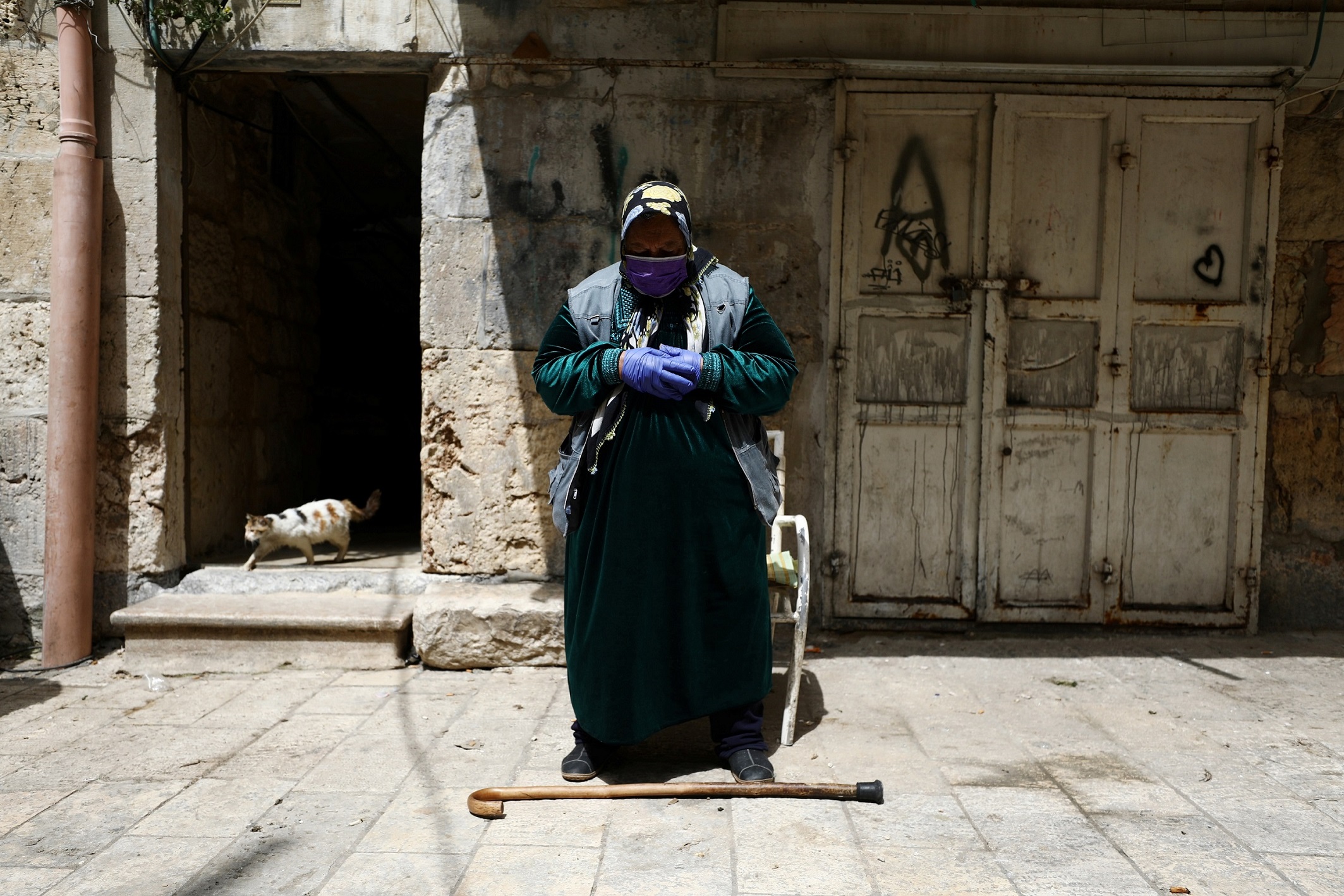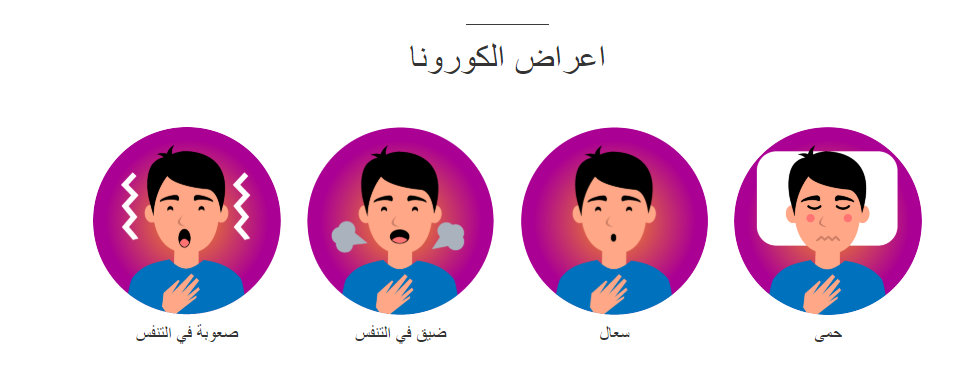Publications
INSS Insight No. 1288, March 31, 2020

The dissemination of information in Arabic about the coronavirus pandemic, along with social distancing and hygiene-related instructions to the public has increased the Arab community’s awareness of the severity of the crisis. The Arab public as a whole and its leaders – political, social, and religious – have devoted greater attention to the guidelines and worked to implement them on a broader basis. At the same time the Arab public must cope with social, religious, and economic challenges particular to their communities. The crisis underscores to what extent Jews and Arabs in Israel share similar circumstances, as Arab medical teams work shoulder to shoulder with Jewish teams to save lives and fight the pandemic. The government must ensure the timely issue of information and instructions in Arabic, equality in the provision of medical services and financial assistance, and equal access to educational and welfare services.
The Arab society in Israel faces various conditions, including language barriers that complicate its ability to implement Ministry of Health instructions on how to deal with the coronavirus outbreak. Consequently, it appeared as if the Arab society did not fully internalize the severity of the situation and take the instructions seriously enough. A significant delay in the government's dissemination of instructions in Arabic led to severe gaps in the level and scope of the information reaching much of the Arab public. However, particularly after the schools were closed, the Arab society joined the overall national efforts to contain the pandemic. At the same time, the Arab public generally tends not to use online medical services; quite a few of the Arab localities lack sufficient clinics; and many individuals flock to hospital emergency rooms, which intensify the load there and increases exposure to diseases. These problems are even worse in the Bedouin localities in the Negev.
The broader dissemination of information in Arabic has increased the awareness among the public of what is required, including avoiding large gatherings, reducing the number of people attending prayers in the mosques, and canceling Friday prayers. The religious leadership together with the Islamic Council for Religious Rulings has played an important role in this regard. In addition, Arab doctors and medical personnel, as well as civil society organizations, have joined the drive to increase communal awareness. The Arabic television and radio stations have begun to broadcast rules of hygiene and social distancing norms. At the same time, most Arab local authorities, including the southern Bedouin communities, are not sufficiently prepared to function in a situation of extended emergency.
The Challenges in Persuading the Arab Public to Comply with the Instructions
- Mistrust of the government: In recent years feelings of alienation and lack of trust in the government have increased in Arab communities, in response to exclusionary policies and rhetoric. This distrust presumably affected the level of attention paid to instructions on dealing with the coronavirus, at least at the beginning.
- Social aspects: The overcrowding that is typical of Arab towns and the population’s demographic make-up (large families, clans, and tribes) make it hard to observe social distancing and avoid physical contact. Large families live together, putting them at risk. People tend to congregate in family and tribal centers, at cafes and smoking venues, and at crowded traditional social gatherings. Most towns have housing for the elderly but lack special protection or isolation measures. In such conditions, Arab society is more exposed to infection and morbidity than the general population.
- Religious aspects: About 85 percent of the Arab public is Muslim; many, particularly the elderly, generally attend mosques for some of the five daily prayers. Attendance at mosques was only recently restricted, while Friday prayers were canceled on the instructions of the local authorities and in coordination with the imams. A similar move took place among the Christian sector, which is observing Lent with fasting and prayers in advance of Easter. As of now, public awareness is higher, but as Ramadan approaches in late April, the compliance rate will be tested again, as many are eager to participate in mass prayers at the mosques.
- Language gaps: At the beginning of the outbreak, most messages from the government were not issued in Arabic, and much of the information delivered subsequently in Arabic was late in arriving. Many in the Arab community, particularly the elderly, are not exposed to digital information. Arab medical doctors have recently begun on their own initiative to translate information to enhance knowledge and reduce confusion and anxiety in the community
- The Bedouin in the Negev: The challenges posed by social, religious, and language norms are greatly exacerbated among the Bedouin communities in southern Israel. For example, most weddings take place on Fridays during the wedding season, from March to the end of September; there might be dozens of weddings on one Friday. Furthermore, many Bedouin localities, particularly the unrecognized ones, suffer from the lack of ordinary water and electricity supply. Awareness of the epidemic risks and the importance of following strict rules of hygiene is fairly low. Unrecognized Bedouin villages have no internet access, which makes it hard to receive access to information and denies the children kept at home the option of remote learning and entertainment.
Opportunities
Common to the entire Israeli public, both Jewish and Arab, is the supreme goal of saving lives and containing the pandemic. The current emergency leaves no room for racism or exclusion, and underscores the need for solidarity. Without the Arab medical and health workers and without cooperation between them and Jewish medical personnel, the efforts to save lives in Israel would be fatally compromised. The large numbers of Arab doctors, nurses, pharmacists, and other health and welfare providers helps to raise public awareness in the Arab sector of the importance of following the government’s instructions. Arab medical professionals can also reinforce trust and cooperation between Jews and Arabs, despite the challenges of repeated offensive political statements regarding the exclusion of Arab elected representatives from participating in the government.
Policy Recommendations
- Jewish and Arab medical teams alike are combat soldiers in the shared war against the pandemic. The Arab population must be treated as equals and full partners in dealing with the danger, and given the sense that they and their welfare are taken seriously. The neglect of some groups (such as the Bedouin or the Shu'afat refugee camp in East Jerusalem) in the struggle against the virus might well increase the risk of outbreaks in those areas, which could spread all over the country.
- In the wider context of Jewish-Arab relations, the sense of shared destiny should be seen as an opportunity not to be missed to create a new and positive basis for the full integration of Arabs into the social fabric of Israel. There should be an end to exclusionary and racist discourse and statements that call into question Arab loyalty to the state; Arabs’ wish to participate in the political levels and the legitimate integration of their representatives in the decision making processes should be recognized and respected.
- On this basis, the following steps should be taken:
- Make the Ministry of Health information and guidelines equally accessible to the Arab public, using correct and understandable Arabic, and not only on-line, as it is to the Jewish public. More call centers in Arabic should be established.
- Ensure equal provision of medical services, such as the drive-in testing center, while granting adequate representation to Arabs at decision making levels in the Ministry of Health and other ministries that are relevant to the crisis. It is also necessary to appoint a senior Arab spokesperson behalf of the Ministry of Health who can appear before the Arab public as a credible professional authority and encourage the appearance of Arab health experts in the principal media channels, including the Hebrew stations.
- Launch a public information campaign in Arabic to educate people on how to deal with the virus. The information also should be presented by religious leaders and other influential figures, and address each community according to its customs, culture, and needs. Different Bedouin populations need specific kinds of information conveyed, preferably orally, by religious and communal leaders, as well as by doctors who come from tribes and families that are seen by the population as role models.
- On the subject of digital monitoring, it is necessary to ease the concerns of Jews and Arabs alike regarding abuse of the information, to ensure that this tool is used for strict medical purposes only.
- Specific financial resources should be allocated to the Arab society, including the Bedouin, which relies on tourism. About 60 percent of salaried Arabs work outside their home towns, and many are already unemployed. Small businesses in Arab communities are expected to suffer from the economic collapse and it is important to ensure financial help for them. There must be a rapid mechanism to complete procedures with the National Insurance Institution for workers on unpaid leave. High levels of unemployment and economic crisis will intensity poverty and might increase the incidence of violence and crime.

- Police enforcement of social distancing and the ban on crowds must be applied equally and in cooperation with the local leadership and religious leaders. This will help provide legitimacy for absence from funerals and weddings, as well as refraining from communal mourning gatherings and other public occasions.
- Education and welfare: there must be equal access to services for students through remote learning, as well as for disadvantaged population groups, particularly the elderly and women, who could be more exposed to domestic violence following lengthy confinement to the home. In all these areas it is advisable to work with civil society organizations and the local leadership, such as the Supreme Monitoring Committee and the Main Committee of Local Authorities.
- Arab local authorities, particularly the Bedouin ones in the Negev, must be prepared to function in pandemic circumstances: training is necessary for security officers and mayors, and the supply of essential equipment is imperative.
- It is advisable at this stage to suspend the demolitions and the campaign against illegal construction in Arab localities.
Adoption of these recommendations first and foremost reflects the state’s duty toward its citizens in a time of severe, ongoing crisis. In addition, these measures can reinforce a growing trend among most Arab citizens regarding their integration into all areas of the state. Equal treatment and opportunities for the Arab population, in words and deeds, will help them to deal with the pandemic, and also encourage them to see the state as their own, working for them. This is a vital historic opportunity.


